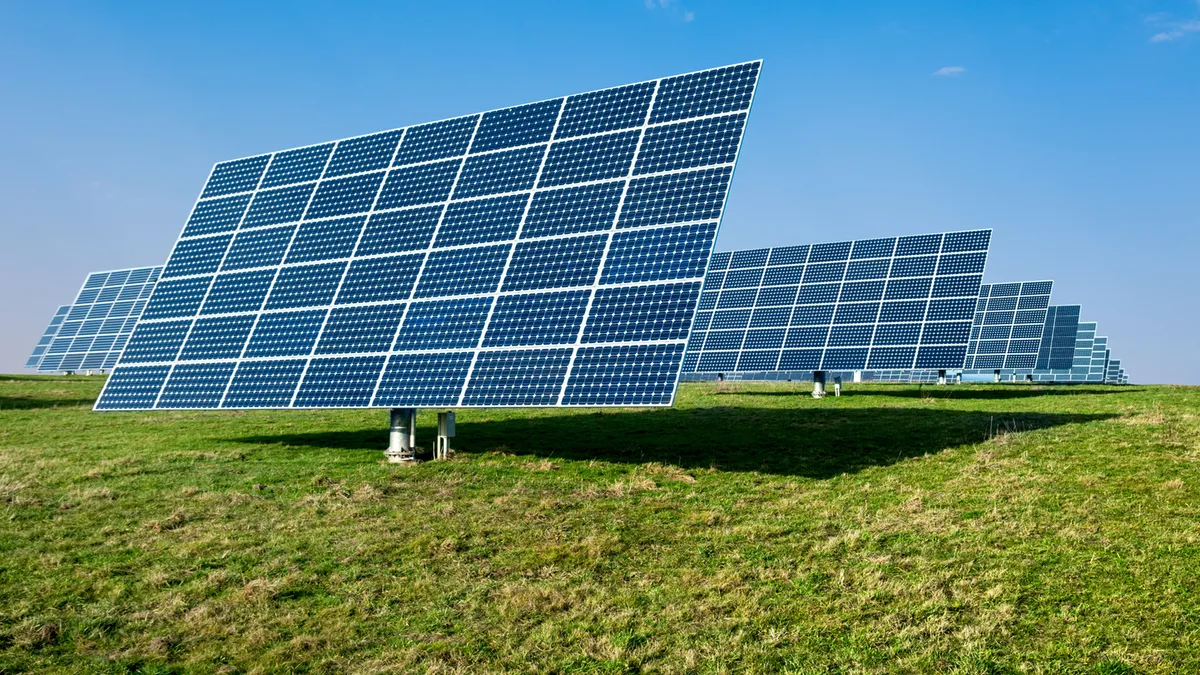Dive Brief:
- Three of Florida’s leading electric utilities are moving into solar as activists ready a ballot initiative that would let solar owners fulfill a utility service by selling excess on-site solar generation, the Tampa Bay Times reports.
- Despite having the third best solar potential in the nation, Florida ranks 13th in installed capacity — a symptom, solar advocates say, of past utility resistance to solar and distributed generation. They argue their ballot initiative and pro-renewables activism is pushing utilities to invest more in solar.
- But Duke Florida, which has made some big solar annoucements in the state recently, says solar is ismply good business. Utility President Alex Glenn told the Times its recent solar investment is due to the 60% module cost drop and increasing energy storage options.
Dive Insight:
Ballot initiative advocates include the Tea Party, the Christian Coalition, libertarians, and environmentalists. The initiative would change Florida law and allow electricity sales by private parties. It would legalize third party funded solar leasing, a finance policy that has driven solar growth nationally.
If the Florida Supreme Court approves the ballot initiative, its supporters must gather 600,000 verified signatures to qualify for the 2016 ballot.
Solar advocates argue the ballot initiative would drive a rooftop solar installation boom and bring huge economic benefits. Solar installers are typically small businesses. Clean Jobs Florida recently found that 75% of clean energy businesses have fewer than 10 employees but have grown 11% over the preceding 12 months.
Utilities have shown how solar grows jobs by employing local subcontractors to build utility scale arrays, advocates say, and are increasingly moving into the space. Duke has pledged over 500 MW of solar, more than twice Florida’s 240 MW installed capacity, in the next ten years. Gulf Power recently contracted to build solar arrays at three Florida military installations.
Duke’s Glenn said only 20% to 30% of Florida roofs are solar suitable, and utilities should focus on centralized and more cost-effective community shared solar arrays that offer all utility customers solar benefits.














